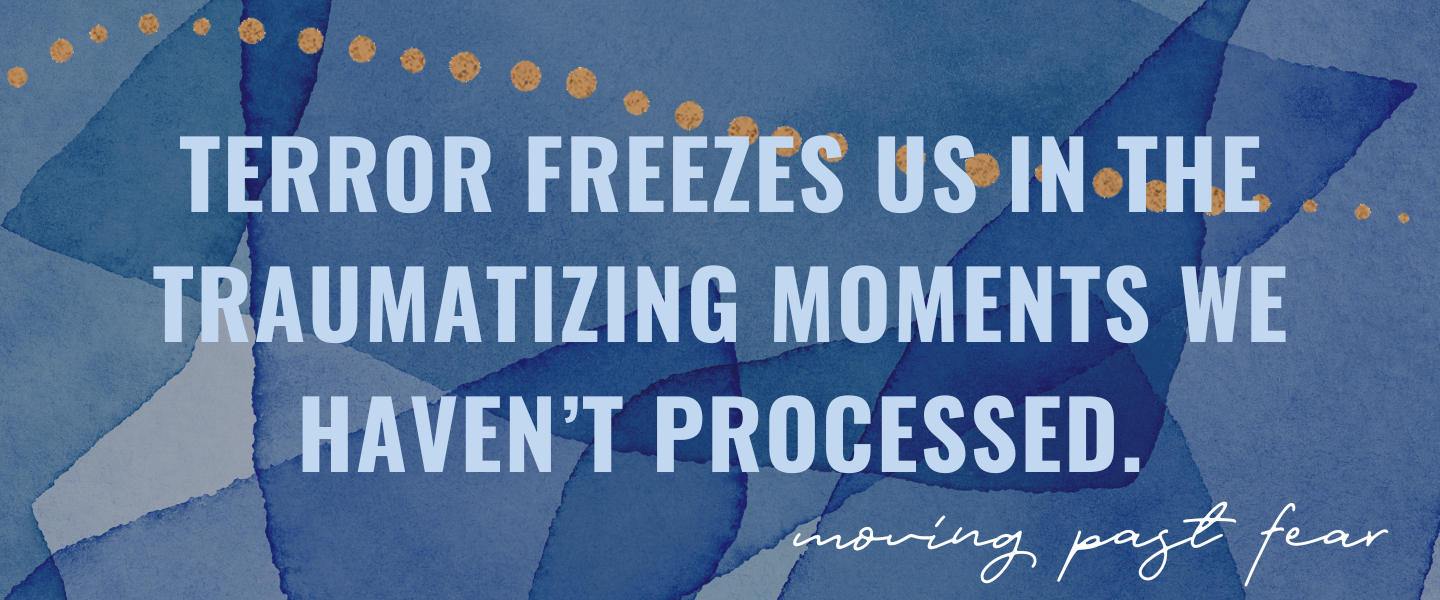Moving Past Fearნიმუში


Frozen by Fear
Almost none of my clients come in saying, “I have trauma, I live in a constant state of fear, and I really want to work through it.” Most of them come in saying things like:
“I can’t stop doing______, and I don’t know why.”
“I feel sad all the time.”
“I think I have anxiety.”
“I have trouble sleeping.”
“My emotions are everywhere.”
“I keep thinking about this, and I just want to be over it.”
Each of those statements is a plea to reclaim what trauma has taken from them: security, peace, assurance, and the belief that they are worthy of good things.
Terror freezes us in the traumatizing moments we haven’t processed. To process trauma is to investigate the wounding thoughts, feelings, and perspectives we’ve developed about ourselves and the world. Processing our pain includes discovering what we needed but didn’t get, so we can give ourselves what we need to heal those past wounds and feel safe in our present experience of life. Fear is a defining factor of trauma because it’s the state our brains and bodies are stuck in until we address it, even when we’re not cognitively aware it is happening. It leads us to cycles of self-betrayal, self-sabotage, and so much more.
Am I saying you’re cowering in a corner? Not necessarily physically. Being frozen in terror sometimes looks like reverting to the scared person we were when we were first wounded. Sometimes it looks like an inability to respond maturely to situations that resemble historically frightening environments.
The child in us that never got what they needed won’t ever grow up until they get what they need. However, rather than meeting those needs, we shun the idea of childlikeness and deny ourselves the things we need to feel safe, doing to ourselves what others have done to us.
In the coming days, I’ll offer ways to begin cultivating environments of safety within ourselves and increase capacity for learning, connecting, and healing. Each of these methods are deeply rooted in God’s beautifully intricate biological design of humans.
How does terror present itself in your life behaviorally? Ask God to reveal the truth behind your actions and fears.
წმიდა წერილი
About this Plan

Any experience of trauma can enable paralyzing fear to take root in our lives. Fear can keep us from the full life God intends for us if we allow it, but we are not at the mercy of our terror. In this five-day reading plan adapted from Why Am I Like This? by trauma therapist Kobe Campbell, scriptures are paired with helpful strategies for loosening the hold fear has over our minds and bodies.
More
Related Plans

Israel: God's Holy Land

Lighting Up Our City: Week 3-Connecting Through Your Story

8 Weeks to Spiritual Fitness

Journey Through Joshua

Winter Warm-Up

A Forever Promise (Bible App for Kids)

BEMA Liturgy I—Part D

Living by Faith: 5 Lessons From the Book of Habakkuk a 5-Day Devotional by Dwan Dixon

Keys to Answered Prayer
